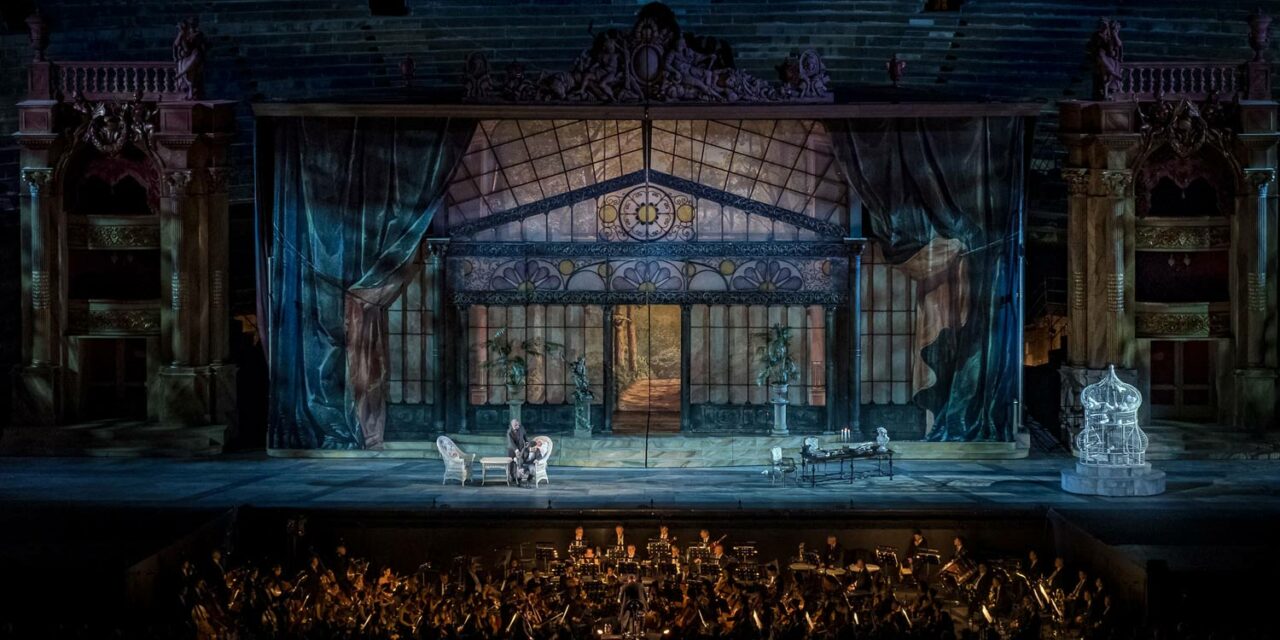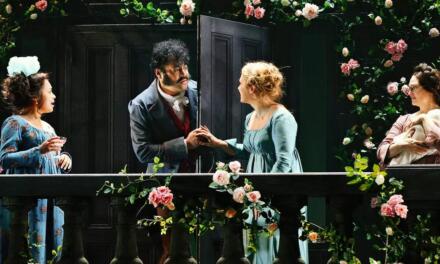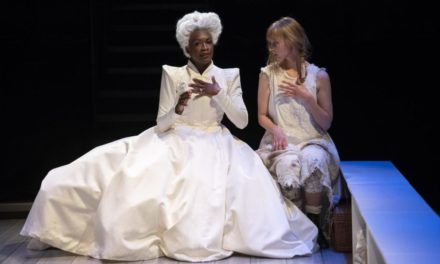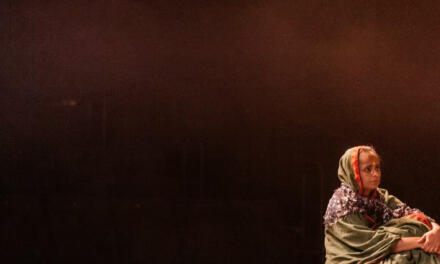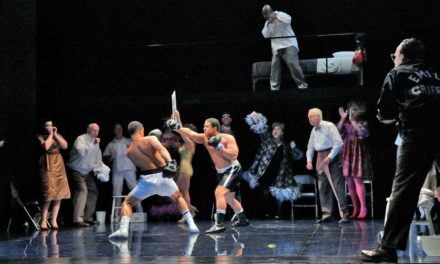“Libiamo ne’ lieti calici . . .” is the most famous aria in La Traviata, by Giuseppe Verdi (1813–1901), with an Italian libretto by Francesco Maria Piave (1810–76), and celebrates the love between Violetta and Alfredo. Based on The Lady with the Camellias, by Alexandre Dumas fils (1824–95), the opera became immensely popular, and many artists have performed the aria. The Roman Arena in Verona, considered the world’s largest open-air opera theatre (it has a seating capacity of 13,500 and hosts approximately 500,000 spectators each season), is a very prestigious context for such representations: the Arena Opera Festival was founded in 1913 and, after a century, is an international music festival of high reputation.

People at the Arena Opera Festival. Press Photo.

La Traviata (Act 1). Staging at the Arena Opera Festival (2019), opera director Franco Zeffirelli. Press Photo.
This year, the Arena Opera Festival opened with a new production, La Traviata, on 21 June 2019. It is the last masterpiece of the director Franco Zeffirelli, who died in Rome (at age 96) a week before, on 15 June 2019. As an homage to the great master, the staging was broadcast worldwide on TV in the presence of the president of the Italian Republic, Sergio Mattarella. This is the result of 60 years of work on Verdi’s opera, and Zeffirelli’s monumental scenography is one of the most complex and astonishing in the history of the Arena Opera Festival. A theatre under the stars is the best place to offer a huge, magic box which is also a perfect time machine, able to represent social and private life in the 19th century – in Paris and in the surrounding country. The costumes, by Maurizio Millenotti, enrich the historical impact of the staging, and the contribution of lighting designer Paolo Mazzon reveals the various psychological levels of the plot.
A prologue presents, in a flashback, Violetta’s funeral and Alfredo’s desperation. The love between them was born in the lively atmosphere of a party in a noble house (with interesting choreography by Giuseppe Picone), reaching its best development in the intimate dimension in a country villa outside Paris. The tragic epilogue, in Violetta’s bedroom, is the apotheosis of her sacrifice for love: the young courtesan knows the social consequences of her relationship with Alfredo, and she abandons hope in a future with him. But, with her precarious health, she is also conscious that her life is ending, and her last whisper is for Alfredo – the only real and pure love in her turbulent existence.

La Traviata (Act 2). Staging at the Arena Opera Festival (2019), opera director Franco Zeffirelli. Press Photo.
Zeffirelli’s work as opera director was in perfect combination with his wonderful scenography: it was the basic and vital element of the staging, creating also an effective synergy between singers and musicians (with the conductor Daniel Oren), aimed to exponentially increase the final impact. Moreover, in its impressiveness, this scenography had a perfect equilibrium of functionality: for the audience, the scene changes (about 20 minutes each) were a sort of technical performance with a metatheatrical value – a revival of the magnificent use of the Baroque machinery.

La Traviata (Act 3). Staging at the Arena Opera Festival (2019), opera director Franco Zeffirelli. Press Photo.
In this memorable new production for the Arena Opera Festival, there is the spiritual testament of Franco Zeffirelli: also in the new millennium, opera theatre is one of the eternal collective rites for the people, and the magical atmosphere of open-air theatres has to be increased – in its intrinsic immense value – by all the elements able to conjugate dream and life.

La Traviata. Poster for the Arena Opera Festival (2019), opera director Franco Zeffirelli. Press Photo.
This post was written by the author in their personal capacity.The opinions expressed in this article are the author’s own and do not reflect the view of The Theatre Times, their staff or collaborators.
This post was written by Maria Pia Pagani.
The views expressed here belong to the author and do not necessarily reflect our views and opinions.

